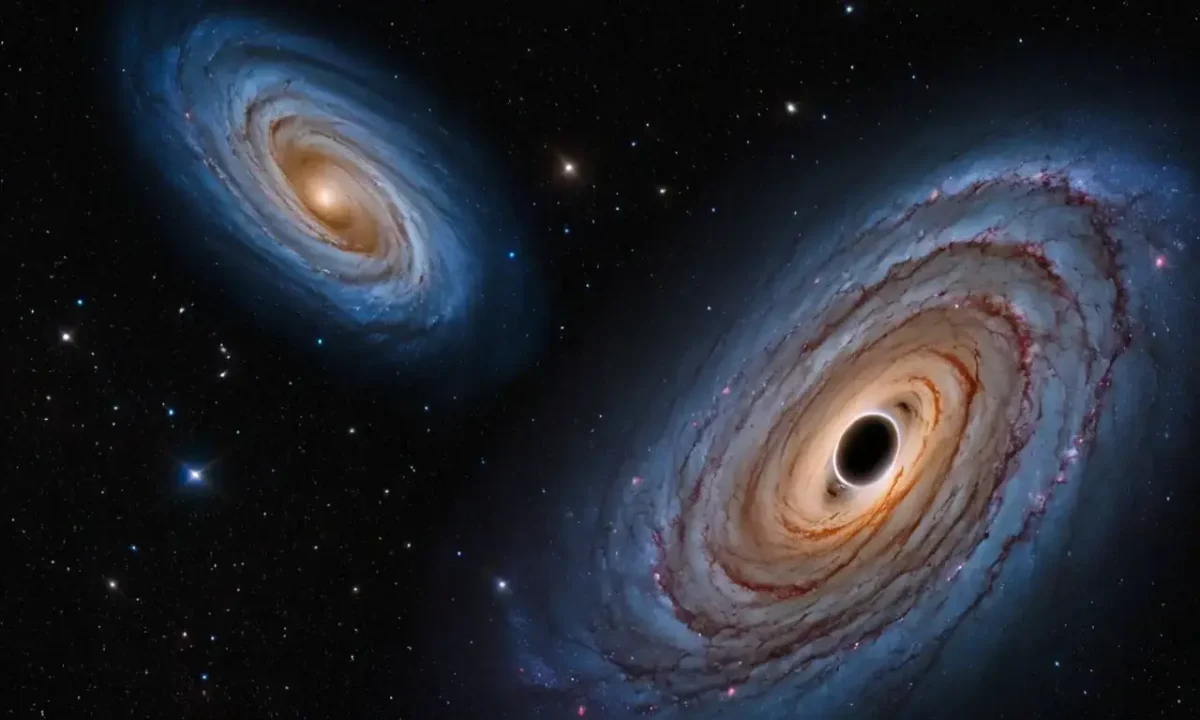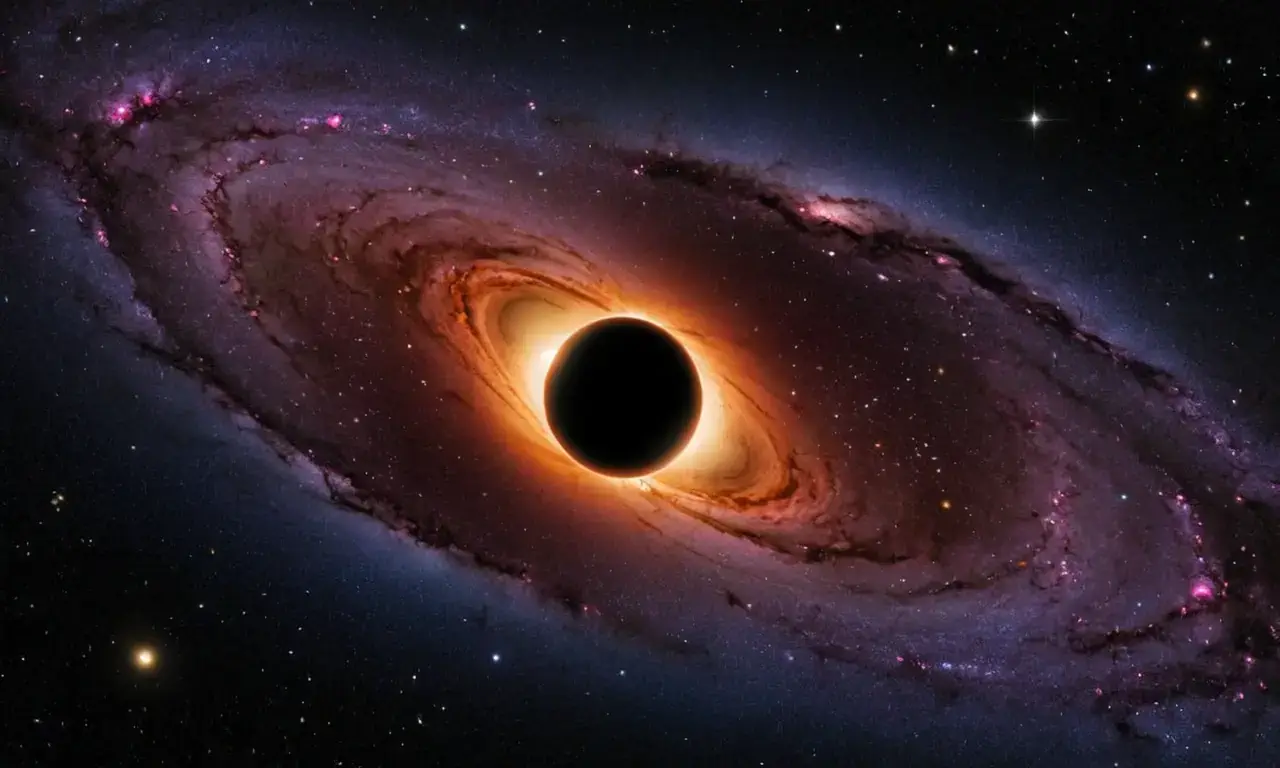
Big Crunch: Universe's Fate in a Collapsing Singularity

The universe is an expansive and awe-inspiring phenomenon, constantly evolving and changing over billions of years. From its humble beginnings as a singularity to its current state of expansion, the cosmos has captivated scientists and philosophers alike for centuries. One intriguing question that continues to spark debate among cosmologists is the ultimate fate of the universe: will it continue expanding indefinitely or eventually collapse into a singularity? This article delves into the concept of the big crunch theory, exploring its origins, supporting evidence, challenges, and potential implications for our existence within this vast cosmic landscape.
The objective of this article is to provide a comprehensive overview of the big crunch theory, examining its historical development, scientific basis, and ongoing debates surrounding its validity. By understanding the intricacies of this theoretical framework, we can gain valuable insights into the universe's future and appreciate the complex interplay of forces that shape our cosmic home.
What is the Big Crunch?
The big crunch theory proposes a fascinating scenario for the universe's ultimate fate: a reversal of its current expansion phase. As per this theory, the universe will eventually stop expanding due to the relentless pull of gravity. This gravitational force, originating from the mass of all celestial bodies within the universe, acts like an invisible hand pushing everything together. Over time, this inward pull will become increasingly dominant, leading to a dramatic contraction of space itself.
Imagine a soufflé being gently squeezed – that's essentially what happens in the big crunch. The expansion phase, which has been observed for billions of years, eventually gives way to a collapse into an infinitely dense singularity. This singularity represents a point where all matter and energy are concentrated into an infinitesimally small space, defying our current understanding of physics.
While this theory is based on fundamental physical laws like gravity and the expansion of the universe, it remains a hypothesis with no definitive proof. Cosmologists continue to debate whether the universe will indeed contract or if its expansion will continue indefinitely. This ongoing debate has significant implications for our understanding of the cosmos and our place within it.
Evidence Supporting the Big Crunch
Several pieces of evidence support the big crunch theory, although none definitively proves its validity. One such piece of evidence is the observed acceleration of the universe's expansion. Astronomers have detected that galaxies are moving away from each other at an accelerating rate, a phenomenon known as "dark energy." This mysterious force appears to be counteracting gravity and driving the expansion of the universe.
However, this acceleration also suggests that the big crunch might not be inevitable. If dark energy continues to dominate the universe's evolution, it could potentially lead to a continued expansion without ever collapsing into a singularity. Another piece of evidence comes from the study of the cosmic microwave background radiation (CMB). This faint afterglow of the Big Bang provides insights into the early universe and its properties. The CMB data suggests that the universe is expanding at an accelerating rate, which further supports the idea of dark energy playing a crucial role in shaping its future.
However, these observations do not conclusively prove the big crunch. They merely provide additional evidence for different scenarios regarding the universe's ultimate fate. Further research and exploration are needed to fully understand the implications of these findings and their relationship to the big crunch theory.
Challenges and Alternative Theories
Despite its theoretical appeal, the big crunch faces several challenges that have led to alternative theories about the universe's future. One such challenge is the "fine-tuning problem." This refers to the seemingly improbable coincidence of physical constants like the speed of light and the strength of gravity being just right for life to emerge in the universe. If these constants were even slightly different, the conditions necessary for life might not have been possible.
Another challenge lies in the lack of observational evidence directly supporting the big crunch. While we can observe the expansion of the universe through redshift measurements, there is no direct evidence of its eventual contraction. This makes it difficult to definitively prove or disprove the theory. Additionally, alternative theories like "eternal inflation" propose a cyclical model where the universe expands and contracts in an endless cycle, potentially challenging the big crunch hypothesis entirely.
These challenges highlight the need for further research and exploration into the fundamental forces governing the universe's evolution. While the big crunch remains a compelling theory, it is crucial to consider alternative explanations and continue investigating the mysteries of our cosmic existence.
Implications for the Universe's Future

The outcome of the debate surrounding the big crunch has significant implications for the future of the universe and potentially even life itself. If the universe does indeed contract into a singularity, this event would have profound consequences for everything we know about physics and cosmology.
For instance, the collapse of the universe could lead to the formation of a new "Big Bang," where all matter and energy are compressed into an incredibly dense point. This hypothetical scenario raises questions about the very nature of time and space as we understand them. Additionally, if the big crunch occurs, it would likely result in the complete annihilation of all known matter and energy, effectively ending our universe as we know it.
However, if the universe continues expanding indefinitely, this could lead to a "heat death" scenario where stars fade away due to lack of fuel and galaxies merge into larger structures. This scenario raises questions about the potential for life to exist in such a vast and seemingly lifeless universe. Ultimately, understanding the fate of the universe is not only a scientific pursuit but also a philosophical one, prompting us to contemplate our place within this grand cosmic scheme.
The Role of Dark Energy
One of the most intriguing aspects of the big crunch theory is its connection to "dark energy." This mysterious force constitutes about 68% of the universe's total energy density and appears to be driving the accelerated expansion of the cosmos. While we don't fully understand dark energy, it plays a crucial role in shaping the future of the universe.
If dark energy continues to dominate the universe's evolution, it could potentially lead to an eternal expansion without ever collapsing into a singularity. However, if dark energy eventually weakens or changes its behavior, the big crunch theory might become more plausible. This ongoing debate highlights the need for further research and exploration of dark energy to better understand its role in shaping the universe's fate.
Ongoing Research and Debates
The study of the big crunch remains an active area of research within cosmology. Scientists continue to explore various theoretical frameworks, including modified gravity theories that attempt to reconcile general relativity with observations of dark energy. These efforts aim to refine our understanding of the universe's evolution and potentially provide a more accurate prediction of its ultimate fate.
Furthermore, ongoing missions like the James Webb Space Telescope (JWST) are providing valuable data about distant galaxies and their behavior. This information can help scientists better understand the expansion rate of the universe and how it might evolve over time. By studying these celestial objects, researchers hope to gain further insights into the big crunch theory and its implications for our cosmic future.
Conclusion
The big crunch theory offers a fascinating glimpse into the potential fate of the universe. While this theory remains a hypothesis with no definitive proof, it highlights the complex interplay of forces that shape our cosmos. The debate surrounding the big crunch continues to inspire research and exploration in cosmology, pushing us to consider the vastness of space and the mysteries that lie beyond our current understanding.
Understanding the ultimate fate of the universe is not only a scientific pursuit but also a philosophical one. It prompts us to contemplate our place within this grand cosmic scheme and ponder the very nature of existence itself. As we continue to explore the cosmos, unraveling the secrets of the big crunch theory could provide invaluable insights into the fundamental laws governing our universe and potentially even lead to new discoveries about life's origins and its future in a vast and ever-evolving cosmos.
Leave a Reply





Related Links